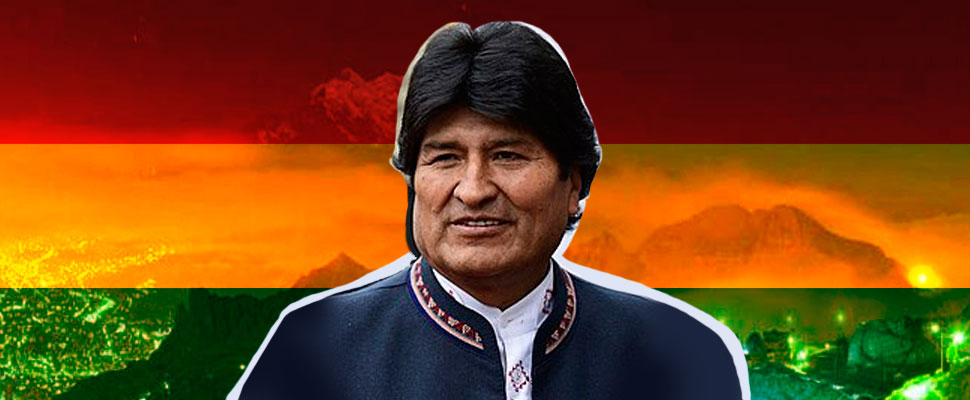Evo Morales: eager for power
Listen this article
The controversial Bolivian president goes for his fourth term in power, will he achieve it?

Not satisfied with being 12 years in power, Evo Morales now wants to go for another five years. It would seem that the referendum he held in 2016 to modify the Constitution in his favor and be re-elected, wouldn't have existed, because that vote ended with 51.4% of votes against that attempt of re-election.
Leer en español: Evo Morales: con ansias del poder
Since then, Morales has made several attempts, either for his re-election to be valid or for his candidacy for the presidential elections of 2019 to be taken IGNORE INTO account. However, how has it lasted so long in power?
Well, when Evo Morales came to power in 2006, he proposed to make a transformation of the country, which was supported by the people. However, "a great chance to end the Yankee empire", as he proclaimed in the campaign, was not going to be easy without a major modification.
At that time he proposed a reform of the Constitution, which was accepted and in which it was proposed that the presidential term could be 5 years and with the option of being re-elected only once more (Article 168).
Thus, in 2009 he won re-election and immediately proposed a new reform in the Constitution. In the words of the journalist Pilar Ferreira "In 2009, he consolidated Bolivia as a Plurinational State". At the end of his term in 2014, he completely ignored Article 168, arguing that his first re-election did not count since "Bolivia had been re-founded."
Also read: Who are the presidential candidates in Bolivia for 2019?
Addicted to reforms
Not happy with the results of the 2016 referendum, Morales did everything possible to have power once more. On December 4, the Electoral Tribunal authorized the re-election for the fourth time of Evo Morales and Álvaro García, as reported by Sputnick.
It is important to note that the most important courts in the country have a high participation of militants of the Movement to Socialism, a party to which Morales currently belongs. Therefore, the president and now presidential candidate was going to be everything possible so that in the elections of 2019, his name was among the candidates.
What comes next?
Faced with this decision, several civic groups and the opposition have spoken out against this determination, in addition to preventing Morales from returning, once again, to being a presidential candidate. According to the portal Al momento, "several people started a hunger strike in different parts of the country." The protests even led to the burning of the Electoral Tribunal, the body that approved the candidacy of Evo Morales.
On the other hand, the indigenous community rejected his re-election. For Nelo Yarari, leader of Carmen del Emero, Morales has broken the indigenous traditions of sharing power, in addition to not being faithful to his principles in terms of environmental care, as Morales "has promoted the extraction of oil and gas in protected areas and has proposed hydroelectric dams that required displacing some indigenous communities "
The new dictator?
There is no doubt that Morales wants to win a fourth re-election at all costs. The really worrying thing is to observe how he is doing: manipulating the laws at will, going over articles proposed by the Constitution, among others.
Against this, several politicians from different Latin American countries, including Fernando de la Rua (Argentina), Vicente Fox (Mexico), César Gaviria (Colombia), Felipe González (Spain), among others, signed a letter addressed to the Organization of American States (OAS) and the European Union. In it, they ask that the organisms be "vigilant" about what happens in Bolivia and that they have the "necessary preventive measures" before what in their opinion is a "rupture of the constitutional and democratic order before the possible reelection of Evo Morales", This according to La Tercera.
Now, although Morales has already registered his candidacy, he has even more obstacles. In a survey revealed by Página Siete, former Bolivian president Carlos Mesa gets five points ahead of Morales in voting intentions. Morales will have to do everything possible to be able to cut back and overcome this gap. But, how farther is Evo Morales able to have the power?
LatinAmerican Post | Laura Viviana Guevara Muñoz
Translated from "Evo Morales: con ansias de poder"





